|
Bachelor's degree in Biotechnology
|
Elements of mathematics for physics (2025/2026)
|
2
|

|
2
|
|
|
Bachelor's degree in Biotechnology
|
Mathematics and statistics
(2025/2026)
|
12
|

|
12
|
|
|
PhD in Molecular, Industrial and Environmental Biotechnologies
|
Principles of statistics for biotechnologists (2025/2026)
|
1
|
|
1
|
|
|
Bachelor's degree in Biotechnology
Course partially running
|
Mathematics and statistics
(2024/2025)
|
12
|

|
12
|
|
|
Master's degree in Biotechnology for bioresources and sustainable development
Course partially running
|
Quantitative methods for biotechnology (2024/2025)
|
6
|

|
6
|
|
|
Bachelor's degree in Applied Mathematics
Course partially running
|
Mathematical and Statistical Methods in Biology (2023/2024)
|
6
|

|
3
|
|
|
Bachelor's degree in Biotechnology
Course partially running
|
Mathematics and statistics
(2023/2024)
|
12
|

|
12
|
|
|
Master's degree in Biotechnology for bioresources and sustainable development
Course partially running
|
Quantitative methods for biotechnology (2023/2024)
|
6
|

|
6
|
|
|
Bachelor's degree in Applied Mathematics
Course partially running
|
Mathematical and Statistical Methods in Biology (2022/2023)
|
6
|

|
3
|
|
|
Bachelor's degree in Biotechnology
Course partially running
|
Mathematics and statistics
(2022/2023)
|
12
|

|
4
|
(Statistica)
|
|
2
|
(Matematica Mod. 2)
|
|
Master's degree in Biotechnology for bioresources and sustainable development
Course partially running
|
Quantitative methods for biotechnology (2022/2023)
|
6
|

|
6
|
|
|
Bachelor's degree in Applied Mathematics
Course partially running
|
Mathematical and Statistical Methods in Biology (2021/2022)
|
6
|

|
3
|
|
|
Bachelor's degree in Biotechnology
Course partially running
|
Mathematics and statistics
(2021/2022)
|
12
|

|
4
|
(Statistica)
|
|
2
|
(Matematica Mod. 2)
|
|
Master's degree in Biotechnology for bioresources and sustainable development
Course partially running
|
Quantitative methods for biotechnology (2021/2022)
|
6
|

|
6
|
|
|
Bachelor's degree in Applied Mathematics
Course partially running
|
Mathematical and Statistical Methods in Biology (2020/2021)
|
6
|

|
3
|
|
|
Bachelor's degree in Biotechnology
Course partially running
|
Mathematics and statistics
(2020/2021)
|
12
|

|
4
|
(Statistica)
|
|
2
|
(Matematica Mod. 2)
|
|
Master's degree in Biotechnology for bioresources and sustainable development
Course partially running
|
Quantitative methods for biotechnology (2020/2021)
|
6
|

|
6
|
|
|
Bachelor's degree in Applied Mathematics
Course partially running
|
Mathematical and Statistical Methods in Biology (2019/2020)
|
6
|

|
3
|
|
|
Bachelor's degree in Biotechnology
Course partially running
|
Mathematics and statistics
(2019/2020)
|
12
|

|
4
|
(Statistica)
|
|
Master's degree in Biotechnology for bioresources and sustainable development
Course partially running
|
Quantitative methods for biotechnology (2019/2020)
|
6
|

|
6
|
|
|
Bachelor's degree in Applied Mathematics
Course partially running
|
Mathematical and Statistical Methods in Biology (2018/2019)
|
6
|

|
3
|
(Parte 2)
|
|
Bachelor's degree in Biotechnology
Course partially running
|
Mathematics and statistics
(2018/2019)
|
12
|

|
4
|
(statistica)
|
|
Bachelor's degree in Biotechnology
Course partially running
|
Mathematics and statistics
(2017/2018)
|
12
|

|
4
|
(Statistica)
|
|
Bachelor's degree in Applied Mathematics
Course partially running
|
Mathematical models in biology (2016/2017)
|
6
|
|
3
|
|
|
Bachelor's degree in Biotechnology
Course partially running
|
Mathematics and statistics
(2016/2017)
|
12
|

|
4
|
(Statistica)
|
|
Bachelor's degree in Biotechnology
Course partially running
|
Mathematics and statistics
(2015/2016)
|
12
|
|
4
|
(Statistica)
|
|
Bachelor's degree in Biotechnology
Course partially running
|
Introduction to Pathology and Immunology (2012/2013)
|
6
|
|
6
|
|
|
Bachelor in Agroindustrial Biotechnology (until 2008-2009 academic year)
Course Not running, not visible
|
Cellular Culture Techniques (2009/2010)
|
6
|
|
2
|
MOD. CELLULE ANIMALI (TEORIA)
|
|
Bachelor in Agroindustrial Biotechnology (until 2008-2009 academic year)
Course Not running, not visible
|
Immunology (2009/2010)
|
4
|
|
4
|
|
|
Masters in Molecular and Industrial Biotechniques
|
Pathology and oncology (2009/2010)
|
2
|
|
2
|
|
|
Bachelor in Agroindustrial Biotechnology (until 2008-2009 academic year)
Course Not running, not visible
|
Cellular Culture Techniques (2008/2009)
|
6
|
|
2
|
Mod. cellule animali (teoria)
|
|
Bachelor in Agroindustrial Biotechnology (until 2008-2009 academic year)
Course Not running, not visible
|
Immunology (2008/2009)
|
4
|
|
4
|
|
|
Masters in Molecular and Industrial Biotechniques
|
Pathology and oncology (2008/2009)
|
2
|
|
2
|
|
|
Bachelor in Agroindustrial Biotechnology (until 2008-2009 academic year)
Course Not running, not visible
|
Cellular Culture Techniques (2007/2008)
|
6
|
|
2
|
Mod. cellule animali (teoria)
|
|
Bachelor in Agroindustrial Biotechnology (until 2008-2009 academic year)
Course Not running, not visible
|
Immunology (2007/2008)
|
4
|
|
4
|
|
|
Masters in Molecular and Industrial Biotechniques
|
Pathology and oncology (2007/2008)
|
2
|
|
2
|
|
|
Bachelor in Agroindustrial Biotechnology (until 2008-2009 academic year)
Course Not running, not visible
|
Cellular Culture Techniques (2004/2005)
|
6
|
|
|
modulo animale
|
|
Bachelor in Agroindustrial Biotechnology (until 2008-2009 academic year)
Course Not running, not visible
|
Immunology (2004/2005)
|
4
|
|
|
|
|
Bachelor in Agroindustrial Biotechnology (old system)
Course Not running, not visible
|
Immunology (2003/2004)
|
60
|
|
|
|
|
Bachelor in Agroindustrial Biotechnology (until 2008-2009 academic year)
Course Not running, not visible
|
Immunology (2003/2004)
|
4
|
|
|
|
|
Bachelor in Agroindustrial Biotechnology (until 2008-2009 academic year)
Course Not running, not visible
|
Immunology (2002/2003)
|
5
|
|
|
|
|
Bachelor in Agroindustrial Biotechnology (old system)
Course Not running, not visible
|
Immunology (2002/2003)
|
0
|
|
|
|
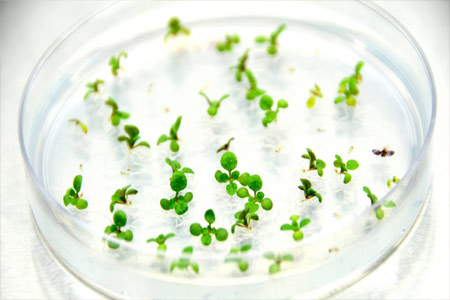
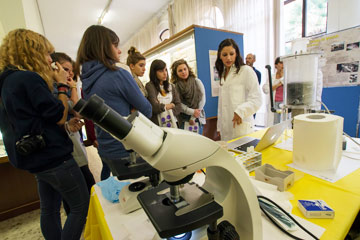
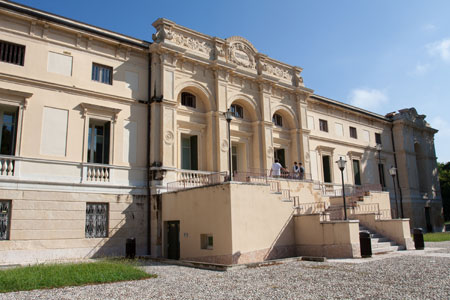



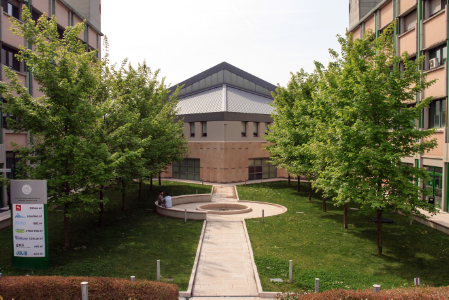
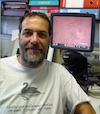
 chignola
chignola univr
univr

